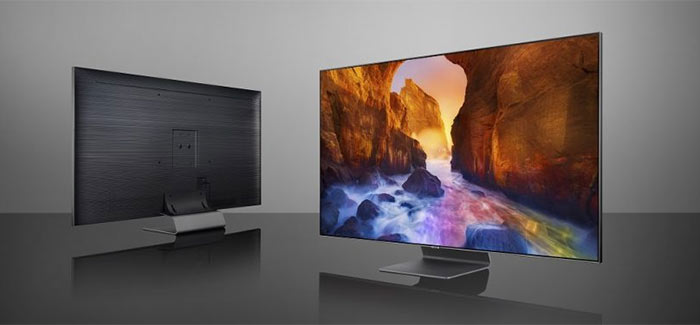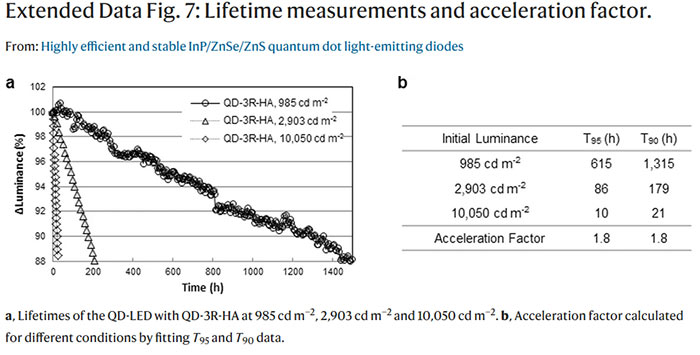Many top-end Samsung TVs sport QLED technology, while its best phones feature OLED screen technology. A few years back Samsung decided not to pursue OLED TV development due to image retention or so called 'screen burn' issues (LG has been in the news due to these issues). Instead, to improve its TV set imagery, it developed technologies using quantum dots to output more vivid and vibrant colours. However, while the tech's max brightness and colour saturation is appealing it doesn't fare so well reproducing darker colours or blacks due to reliance on backlighting zones. In brief, it doesn't offer the per-pixel dimming that OLED does, the best it can offer is multiple local dimming zones.

Now a duo of Samsung researchers have managed to produce efficient and long lasting Quantum dot light-emitting diodes (QLEDs) which self-illuminate. Thus they will be able to truly compete with OLEDs for darker image reproduction while offering some of the brightest and most saturated colours available.

Dr. Eunjoo Jang, Samsung Fellow (above left), and Dr. Yu-Ho Won (above right), a Principal Researcher at the Samsung Advanced Institute of Technology, are said to have improved the structure of quantum dots and have hugely improved quantum efficiency, as well as extended the lifetime of the QLED element. According to the researcher's figures, quantum efficiency is up over 21 per cent with the new dots, and QLED lifetimes have been extended beyond a million hours (>114 years).

Samsung will have had pre-knowledge of the recently published research, and in October it already announced that it was investing US$11bn in factories to manufacture QLED TV screens that self-illuminate. Engadget notes that, as these screens will be a step up from existing TV tech it offers, the new branding will likely be 'QD-OLED' or similar.
The Nature article 'Highly efficient and stable InP/ZnSe/ZnS quantum dot light-emitting diodes' was published on Wednesday.













